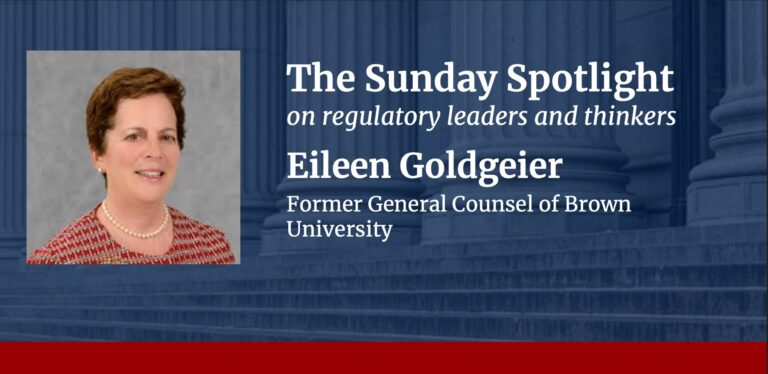
Eileen Goldgeier, the former General Counsel of Brown University, provided insights into her career in higher education law, highlighting the significant regulatory changes that have influenced the sector. Her tenure included the implementation of new regulations in the early 1990s concerning environmental protection and sexual assault prevention, which created additional legal responsibilities for universities. Currently, higher education officials are addressing challenges associated with COVID-19, name, image, and likeness (NIL) contracts for student-athletes, as well as adapting to shifts in affirmative action policies.
Insights from an Experienced Legal Counsel
In an interview with *The Regulatory Review*, Goldgeier discussed the diverse responsibilities undertaken by university legal counsels. She emphasized the importance of establishing the office of general counsel on principles of trust, collaboration, and integrity, which are vital for supporting university leadership in strategic decision-making and for educating the academic community about their rights. Goldgeier indicated that contributing to the mission of higher education was one of the most rewarding aspects of her role.
Background and Experience
Having recently retired as Vice President and General Counsel at Brown University, Goldgeier reflected on her academic background, which includes a bachelor’s degree in environmental studies from Brown and a J.D. from Emory University School of Law. Her professional experience encompasses positions at Johns Hopkins University, the University of North Carolina at Wilmington, and North Carolina State University.
Responsibilities of General Counsel
Goldgeier outlined the primary responsibilities of general counsel as serving as the chief legal officer of a university. This role includes overseeing legal staff, managing outside counsel, advising top university officials, and identifying potential legal risks. She highlighted the necessity of maintaining client trust, characterizing the general counsel’s office as the “conscience” of the university, where integrity is essential.
A Complex Regulatory Environment
Goldgeier’s introduction to higher education law occurred during a period marked by federal audits of universities receiving significant government grants. Her work on investigations at Johns Hopkins University illustrated the importance of defending university actions rather than opting for settlements, which could potentially compromise institutional standards.
Increased Scrutiny and Ongoing Challenges
She noted the increasing complexity of the regulatory environment faced by universities today, compared to a decade ago. Institutions are subject to heightened scrutiny from Congress and federal agencies on matters involving sexual harassment, foreign influence on research, and ethical conduct in university operations. The introduction of NIL deals for student-athletes has further complicated regulatory challenges, with ongoing legal developments influencing the parameters of compensation.
The Need for Legal Resources and Training
Goldgeier underscored the need for adequate legal resources and training to enable university staff to navigate their responsibilities effectively amidst changing regulations. She asserted that a commitment to excellence and integrity should guide legal practices within institutions of higher education, reaffirming their foundational mission.
Future Endeavors
Looking forward, Goldgeier plans to explore other interests and engage in community service related to election integrity, ethics, and refugee resettlement while remaining informed about developments in collegiate athletics and the corresponding legal context.
The Role of Legal Counsel in Higher Education
The discussion highlighted the essential role of legal counsel in addressing regulatory changes in higher education, emphasizing the impact of these developments on university policies and their broader educational missions.
(Source: The Regulatory Review)